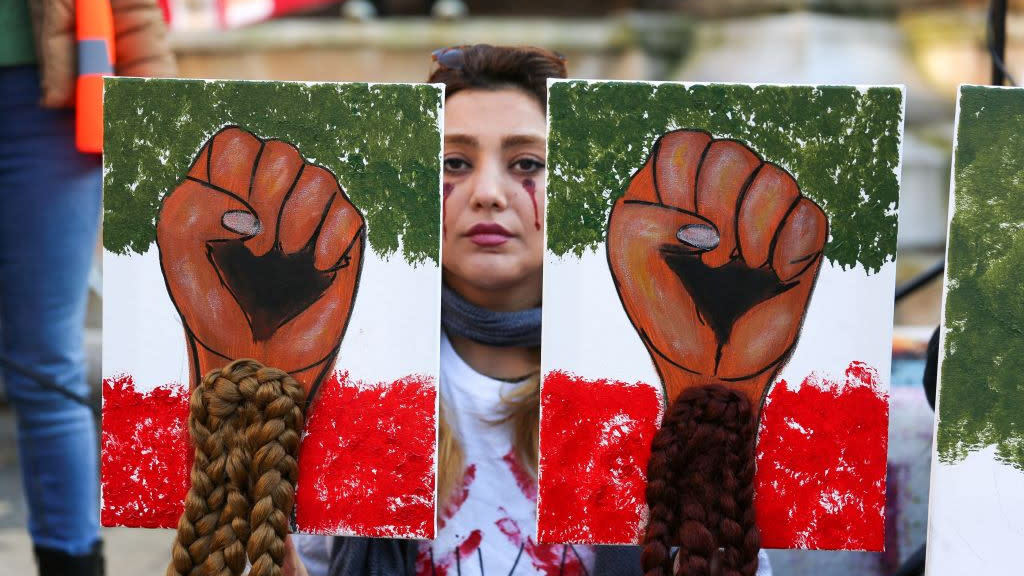15,000 Iranian protesters face death following Bloody Friday massacre

- Oops!Something went wrong.Please try again later.
On Friday (Nov. 11), thousands of Iranians gathered in protest to mark Bloody Friday. The day signifies Sept. 30 when, according to Amnesty International, at least 66 people were unlawfully killed by security guards. Among the deceased were children hit with live ammunition, metal pellets, and tear gas in Zahedan, the capital of flashpoint Sistan-Baluchestan province.
Online reports claim that the number of people killed overseas on Bloody Friday may be much higher. “Fourty days have passed since the #ZahedanMassacre, also known as Bloody Friday. At least 93 people, 13 of them children, were mercilessly killed during [protests] by Islamic Republic security forces in Iran. Where is @UNICEF for Iranian children?” Dr. Nina Ansary, a director at Cambridge University in England, tweeted last week.
40 days have passed since the #zahedanmassacre also known as Bloody Friday. At least 93 people, 13 of them children were mercilessly killed during protest by Islamic Republic security forces in Iran. Where is @UNICEF for Iranian children?#MahsaAmini #IranRevoIution #Iran pic.twitter.com/14MzbNjYMh
— Dr. Nina Ansary (@drninaansary) November 9, 2022
Iran International English, the official English account for the first 24/7 Persian news channel, also shared that the estimated numbers may be higher. “Six weeks after the Bloody Friday when some 100 were killed, and for the seventh consecutive week, the people of Zahedan in southeastern Iran held protest rallies today after their Friday prayers, chanting slogans against Supreme Leader Ali Khamenei and his predecessor Khomeini,” the news station posted on Twitter last week.
According to Newsweek, following the Bloody Friday massacre, another 15,000 jailed protesters may soon face death. The outlet mentioned that Iranian lawmaker Zoreh Elahian voted in favor of imprisoned protesters being sentenced to death. On Sept. 16, 22-year-old Mahsa Amini was fatally beaten while in custody for “reportedly wearing an improper form of hijab.” Iranian officials deny involvement in her death.
Last month, Javaid Rehman, the UN’s special rapporteur to Iran, spoke with Newsweek about what could be done to dissolve tensions, adding “that repression and brutality is not an answer.” Rehman continued, “They have to address genuine concerns, and an important starting point would be the rights of women in Iran.”
See related posts below.
Six weeks after the Bloody Friday when some 100 were killed, and for the seventh consecutive week, the people of Zahedan in southeastern Iran held protest rallies today after their Friday prayers, chanting slogans against Supreme Leader Ali Khamenei and his predecessor Khomeini. pic.twitter.com/WDQ4J6zaMf
— Iran International English (@IranIntl_En) November 11, 2022
"Iranians Commemorate 'Bloody Friday' as Protests Continue"
40 days ago, 82 people were shot dead in the bloodiest single day of the protests, and protesters across Iran held rallies in remembrance of that day. 15,000 people may soon join those killed that day.— Gray Wolf (@graywolf442) November 14, 2022

